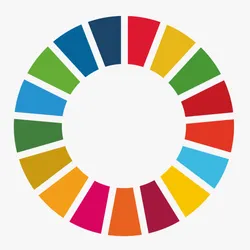Past, Present, Futures
 |
GD110 |
|
Module Designer and Convenor: Dr Romain Chenet |
Option - First year only for GSD single honours |
Term 110 weeks |
15 CATS |
9 x 1 hour lectures |
9 x 1 hour seminars |
|
Available to students outside GSD on application and at convenor's discretion |
Overview
While sometimes presented as a 2015 innovation, the aims underlying Sustainable Development are far from new. In turn, understanding the histories and theories that culminate into its contemporary forms is vital to successfully exploring the complex problems that Global Sustainable Development now sets out to address. This module introduces students to how the global vision for Sustainable Development has come to be, critically explores its contemporary priorities, and considers future opportunities for its realisation. Drawing from the history and theories shaping present-day commitments to Sustainable Development, the module will offer a relevant and useful source of learning on the topic that aims to support students across their BASc in Global Sustainable Development.
Module aims
• To introduce learners to the wider concept of Global Sustainable Development through unpacking of its core themes and aims across recent history.
• To explore nuanced topics in assessing 'problems and solutions' embedded within Sustainable Development itself, and how this has been theorised in leading up to the 2030 Agenda.
• To inspire students in considering how weaknesses and tensions in development can be addressed, helping us conceptualise Sustainable Development as a potential force for positive global futures.
Principal Learning Outcomes
Upon completion of this module, students will be able to:
• Explore key theories and historical processes relevant to Global Sustainable Development.
• Analyse academic debates over problems and solutions that define Global Sustainable Development.
• Actively consider future opportunities to better achieve the Global Sustainable Development vision in practice.
Employability Skills
Through this module, you will develop a number of skills sought by employers. We have highlighted this to enable you to identify and reflect on skills you have acquired and apply them in your professional journey, for instance on application forms or at an interview.
- Working with others: developing professional relationships with others to achieve individual and team outcomes in group activities, presentations, and other module tasks (all forms of employment).
- Effective communication: developing ideas and insights which engage others, driving forward discussions with a focus on actionable and practical solutions. This is a key focus of the module and relevant across sectors (marketing, business, civil sector, third sector).
- Time management: through a requirement to plan independent study, assignments, and engage in other forms of time management in this module, students are able to build valuable workplace skills (all forms of employment)
- Emotional intelligence: students develop a nuanced and practical understanding of complex global issues with a firm emphasis on taking local context and individual experiences into account, supporting future careers where a considered and engaged approach to clients/stakeholders is relevant (social work, NGO project work, customer relations, management, etc.).
Indicative Syllabus
The syllabus advances through three sets of three classes and an assessment support week, which correspond to the weekly lecture and seminar activity. See below for an example of the syllabus.
1. Past 1: Civilising missions and the colonial origins of 'progress'
2. Past 2: Post-WW2 state-based efforts for sustained development
3. Past 3: Honing a global project - Modernisation, dependency, and systematised development
4. Present 1: Liberal development shocks and uneasy foundations for our era
5. Present 2: Critical backlashes for sustainable change: post-development and participatory approaches
6. Reading week (no classes)
7. Present 3: A goals-based millennium: from the MDGs to Agenda 2030
8. Futures 1: Challenges and opportunities for the valuable myths of Sustainable Development
9. Futures 2: Pluralised avenues for social justice and equality
10. Futures 3: From collective pasts to our common future
Assessment
|
Short essay of 1000 words (25%) Individual (video) presentation of 10 minutes (25%) Academic literature review of 2000 words (50%) |
Please note: Module availability and staffing may change year on year depending on availability and other operational factors. The School for Cross-faculty Studies makes no guarantee that any modules will be offered in a particular year, or that they will necessarily be taught in the above manner or by the staff listed on this page.
